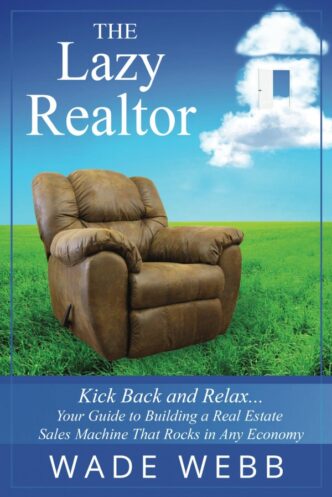
Not being on the road comes with many challenges, including the need for boundaries—space between us to work, relax or simply be alone. When you’re together nearly every minute of every day, those lines must be sacred to keep both your job and your sanity. COVID-19 has brought some of the unique challenges of our lifestyle to our doorstep. With many couples and families confined to work, eat and play wholly at home, boundaries are essential both to create the space you need to remain productive but also for the space you need to recharge. In the small apartments many people rent from city to city, space isn’t something we have a lot of, which means we’re forced to get creative with our solutions for “me time.” Here are some of my best.
1. Communicate with your roommates. This is a natural starting point for anyone working from home with a roommate, spouse, child or needy cat. If you’ve ever had a half-dressed spouse walk in on a video meeting with a client, then you’ll understand why this tip is at the top of the list. Those you share a space with aren’t mind readers, and you can’t expect them to just know what’s going on in your day-to-day work life. Sure, a room with a closed door helps, but that’s not feasible for everyone. No matter the size of your home or the number of your roommates, communication is always beneficial. For me, I send a quick text in the morning with a list of meetings for that day. Then, usually over breakfast, I’ll share what sorts of tasks I’m working on and whether they require absolute focus (don’t bother me) or they’re more mundane (fine, bother me, but make it quick). Figure out a communication strategy that works for you and be consistent.
2. Designate an office space, but be flexible with how you define it. When we first started, we worked from the couch, our bed, the dining room table, the kitchen counter while eating leftover pizza—nowhere was off-limits for you and your greasy MacBook. Your apartment, house became your office, which was made obvious by the breadcrumb trail of pens, sticky notes and coffee cups on any visible horizontal surface. When everywhere said “work,” nowhere said “rest.” Reclaim the sacred space of home by designating an official workspace. No, this doesn’t mean you need to drop several hundred dollars on a desk and ergonomic chair; a work space can be as simple as a bean bag chair in the corner. Of course, if you decide to work outside for a few hours, that’s fine. But by designating an official working area, you allow the rest of your home to be a place of rest and recharging, which is crucial to avoiding overwork and burnout. Bonus: It also helps you avoid explaining away 10 orphaned coffee cups in the span of a morning.
3. Learn and capitalize on your best working hours. It takes time to find a schedule that works for you. At first, you worked from the time you woke up until your eyes hurt from staring at the screen—around 5 to 6 p.m. You equated working more with working better. It wasn’t sustainable and it certainly wasn’t enjoyable. You aren’t a good partner or friend during that time because work got the best of you, and there wasn’t much left at the end of the day. It took me a few years, but I have a working schedule that totals between four and six hours spread throughout the day. But what works for me doesn’t work for someone else. I’m a morning person currently living with two night owls. Between the hours of 6 to 9 a.m., I have the quiet space to do my best and most challenging work while my brain is fresh. Figure out what works for you, communicate that with those you share space with, and see how your productivity changes.
4. Schedule down time and protect it. I need alone time. I don’t often realize until I go days without it, which results in inexplicable irritability and short-temperedness. My solution: Schedule your most precious personal time as you would an important deadline or meeting. I block out an hour of time every day that is just for me to do whatever I want. Most of the time I read in a hammock or take a walk, but this small chunk of private time works wonders for how I feel and interact with others for the rest of the day. For those with children, getting away for an hour can feel impossible. Start small. Ask your spouse to take over for 15 uninterrupted minutes every day. If you can, make it the same time so it becomes habitual. After a week, reflect on your mood, your level of stress and even your physical state. It’s been a game-changer for me.
5. Reclaim your space. Understand that sharing the same space with someone (or multiple someone’s) doesn’t mean you give up your right to be alone. I’m talking about the time outside of sleeping hours, working hours and that special “me time” you have on the calendar. Being together all the time doesn’t mean you have to be together all the time. If you want to watch TV by yourself, speak up. If you want to play some music, have a glass of wine and work on an impossible-to-solve puzzle without making any real progress, say so. These are activities I might normally do with my partner, but that doesn’t mean I forgo the right to do them alone. This sounds simple in concept but harder in practice because it works in reverse, too. Be ready for your partner to explain that although you normally make popcorn and watch apocalypse movies on Thursday night, they would prefer to do that solo this week. Navigating shared spaces is never easy, but when multiple parties work from home, those issues can become magnified. Find resolution by communicating your needs and understanding your limits. It’s a work in progress, and it’s often best solved when working it out together.
6. Change it up. I have realized my work needs to be at my office and my home needs to be just my home. I know my best work is done at my office and I really can’t mix home and office and need to separate the two. For some of us we are able to juggle both and for other’s like myself, I needed to get back to the place where I am at my best. I am so happy separating the two and being at the office has reignited the fire and made coming home something I enjoy again. Going back on the road will return again in the future but in the meantime I will enjoy my home and keep my work at the office and reset myself for success with my work and my family.
Strength and courage,
Wade



